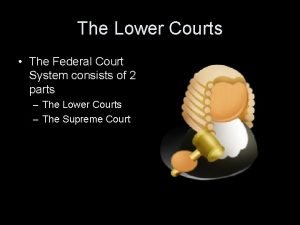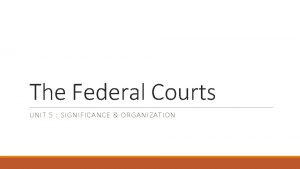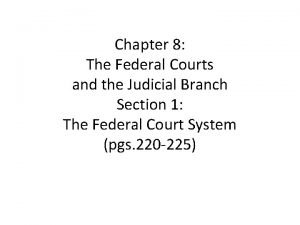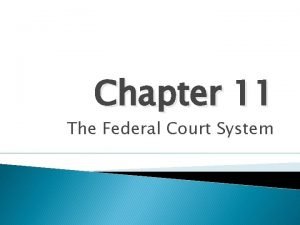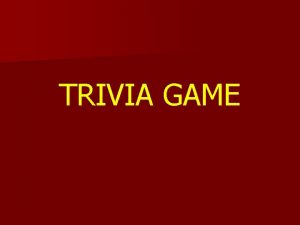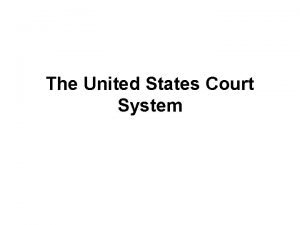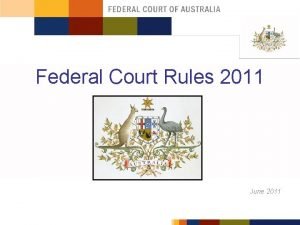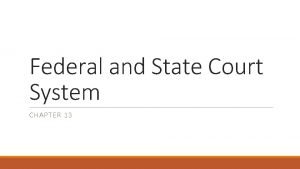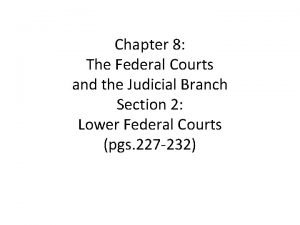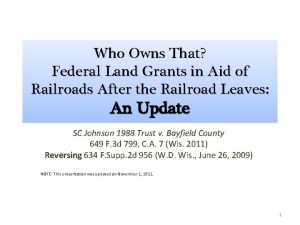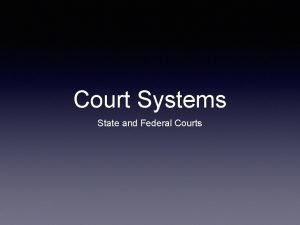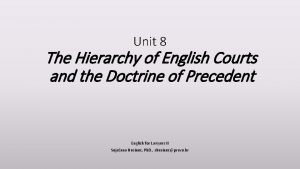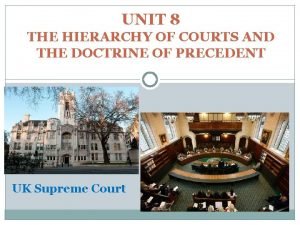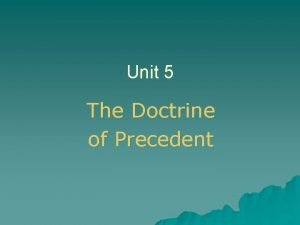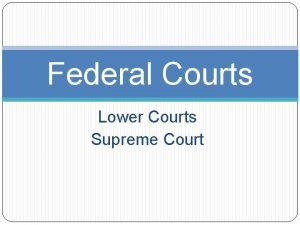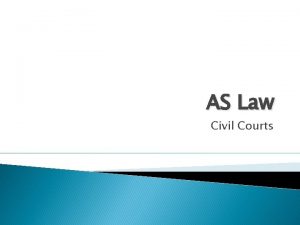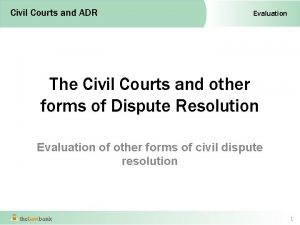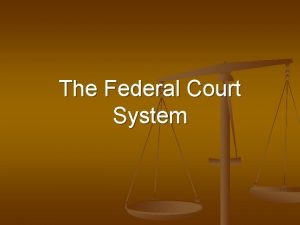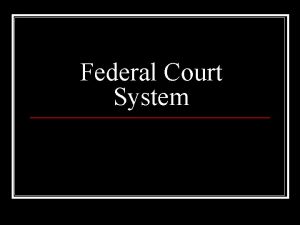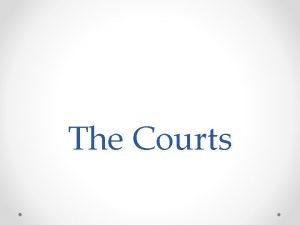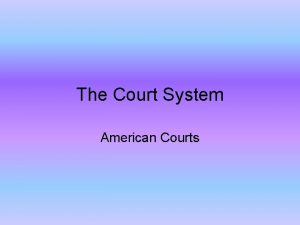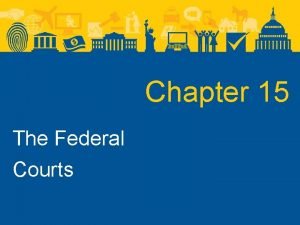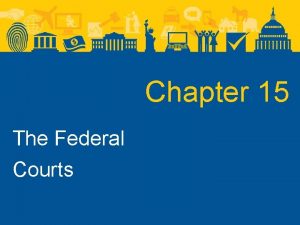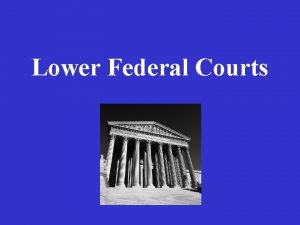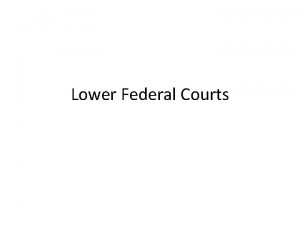The Federal Court System Civil Trials Federal Courts















- Slides: 15

The Federal Court System

Civil Trials • Federal Courts settle civil disputes between private parties, a private party and the government, or the United States and a state or local government. • Each side presents its position. • The court applies the law and decides in favor of one or the other.


Criminal Trials • Federal Courts also hold criminal trials for people accused of crimes. • Witnesses present evidence and a jury or a judge delivers a verdict of guilt or innocence.


Rights of the Accused • All accused people have the right to a public trial and a lawyer. • If they cannot afford a lawyer, the court will appoint and pay for one. • Accused people are considered innocent until proven guilty. • They may ask for a review of their case if they think the court has made a mistake.

Supreme Court of the United States The Court agrees to hear Gideon's case and appoints a lawyer to represent him. In a unanimous decision, the Court ruled that in state felony criminal cases, a person who cannot afford an attorney must be provided one. Thus, Betts v. Brady is overturned. Gideon v. Wainwright (1963) Note: Just before the Supreme Court made its decision, Wainwright replaced Cochran as Director of the Division of Corrections. Supreme Court of the State of Florida Claiming the circuit court's refusal to appoint counsel for him constitutes a denial of his rights, Gideon applies to the state supreme court for a write of habeas corpus (an order asking that he be freed because he was illegally imprisoned). The court denies the request. Gideon v. Cochran (1961) Circuit Court of the Fourteenth Judicial Circuit of Florida Gideon, a poor man living in Florida, is arrested and charged with breaking and entering. He cannot afford a lawyer and the judge refuses to appoint one, ruling the court will only supply lawyers in capital cases. Gideon is convicted and sentenced to jail. State v. Gideon (1961)


Equal Justice Under Law • The goal of the legal system is equal justice under the law. • This goal is difficult to achieve.

The Federal Court System • Article III established a national Supreme Court and gave Congress the power to establish lower federal courts. • Over the years, Congress set up three levels in the federal court system: • The Supreme Court at the Top • Appeals Courts in the Middle • District Courts at the Bottom • Each state also has its own laws and court system.


Jurisdiction • Jurisdiction is a court’s authority to hear and decide cases.

The Constitution Gives Federal Courts Jurisdiction Over Eight Kinds of Cases 1. 2. 3. 4. 5. Cases that Apply to the U. S. Constitution Cases Involving Violations of Federal Laws Cases Between State Governments Lawsuits Between Citizens of Different States Cases Where the U. S. Government Sues Someone, or Someone Sues the U. S. Government 6. Cases Between a Foreign Government and either the U. S. government or an American Private Party 7. Cases Involving Admiralty and Maritime Laws (accidents or crimes on the high seas) 8. Cases Involving U. S. Diplomats

Exclusive Jurisdiction • For most of these eight areas, federal courts have exclusive jurisdiction—only they may hear and decide such cases. • Most U. S. court cases involve state law and are tried in state courts.

Concurrent Jurisdiction • In a few circumstances, the state and federal courts have concurrent jurisdiction—they share jurisdiction and either may hear the case.
 Federal court system structure
Federal court system structure Us federal
Us federal Federal court system structure
Federal court system structure What court helps congress exercise its power
What court helps congress exercise its power State courts us
State courts us Is there a basketball court above the supreme court
Is there a basketball court above the supreme court Us circuit court map
Us circuit court map Federal court rules 2011
Federal court rules 2011 Chapter 13 federal and state court systems
Chapter 13 federal and state court systems Federal district court map new york
Federal district court map new york Federal court structure
Federal court structure Federal and state court systems
Federal and state court systems Civil rights webquest
Civil rights webquest British court hierarchy
British court hierarchy British court hierarchy
British court hierarchy British court hierarchy
British court hierarchy
